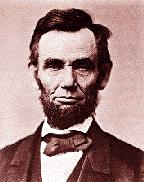I did my own ranking of pop-culture icons back in 2004. Now inevitably out of date, alas.
Let's see how the Smithsonian did:
Meet the 100 Most Significant Americans of All Time
A new, special issue of Smithsonian magazine attempts the impossible: to list out the most significant people in United States history
By T.A. Frail
That’s where we come in. Smithsonian magazine has been covering American history in depth from its inaugural issue, published in 1970. Among the Smithsonian Institution museums we work closely with is the National Museum of American History. By synthesizing our expertise with the systematic rigor of Skiena and Ward’s rankings, we sought to combine the best of quantitative measures and qualitative judgment.
First, we asked Skiena and Ward to separate figures significant to American history from the world population. Then, rather than simply taking their top 100, we developed categories that we believe are significant, and populated our categories with people in Skiena and Ward’s order (even if they ranked below 100). This system helped mitigate the biases of Wikipedia.
It also would justify including people who never set foot in America--anyone from Jesus to Hitler. But never mind.
Here are the Smithsonian's 10 categories and the Native people who made the list:
Trailblazers
Sacagawea
Rebels & resisters
Tecumseh
Sitting Bull
Presidents
First women
Pocahontas
Outlaws
Artists
Religious figures
Pop icons
Empire-builders
Athletes
Jim Thorpe
Five of 100 isn't bad considering Natives make up only 1-2% of the US population. Of course, they formed a majority of the continent's inhabitants as late as 1750, so perhaps they deserve five slots.
I'd actually take out Sacagawea and Pocahontas because I don't think they were that important in the grand scheme of things. I might add Geronimo for his fearsome reputation. Maybe Will Rogers depending on how popular he really was.
Poorly chosen categories
The biggest problem with the Smithsonian's list is its choice of categories. There's no category for scientists and inventors, or intellectuals and writers. These are major omissions.
Furthermore, why outlaws, athletes, or artists? Was Billy the Kid or Secretariat really significant in US history? I don't think so.
I imagine someone at the Smithsonian thought outlaws would be more exciting than scientists, and athletes more exciting than intellectuals. I doubt the Smithsonian could justify these choices on the basis of significance to US history.
Here's how I'd redefine the category to reflect significance, the supposed subject of this exercise, rather than popularity, marketability, or whatever criterion the Smithsonian used.
Trailblazers
Presidents
Military & political leaders
Intellectuals & writers
Social reformers
Architects, artists, & musicians
Religious figures
Athletes, entertainers, & pop icons
Empire-builders
Scientists & inventors
Some explanations:
I don't particularly like the "Trailblazers" category. I'd take out Columbus and Vespucci because they never set foot in America. Besides, if you include them, why not King Ferdinand and Queen Isabella, Sir Francis Drake, Hernán Cortés, or King George III?
In any case, I'd take out a few other "trailblazers" and replace them with the Spanish and other explorers who helped colonize the West.
I'd probably include most of the people in the "Rebels & resisters" category, but they'd have to fit into "Military & political leaders," "Intellectuals & writers," or "Social reformers." These categories would create room in "Military & political leaders" for generals such as William Tecumseh Sherman or Dwight D. Eisenhower and politicians such as Henry Clay or John C. Calhoun.
The biggest omission must be scientists and inventors: Benjamin Franklin, Eli Whitney, Robert Fulton, Samuel Morse, Alexander Graham Bell, the Wright brothers, Albert Einstein, J. Robert Oppenheim, Wernher von Braun, Margaret Sanger, Jonas Salk, James D. Watson and Francis Crick, et al.
You could argue for or against any of these...but really, none of them made the top 100? How about most or all of them instead?
As for the omitted categories: Sorry, first women...you'd have to be significant in another category to qualify. Sorry, outlaws and athletes...you'd have compete in the category with other pop icons. In either case, if you're not significant enough, you're out.
I don't think my categories would lead to any more Natives making the list. But something like a quarter or a third of the entries would change. The results would reflect "significance to American history" much better.



No comments:
Post a Comment